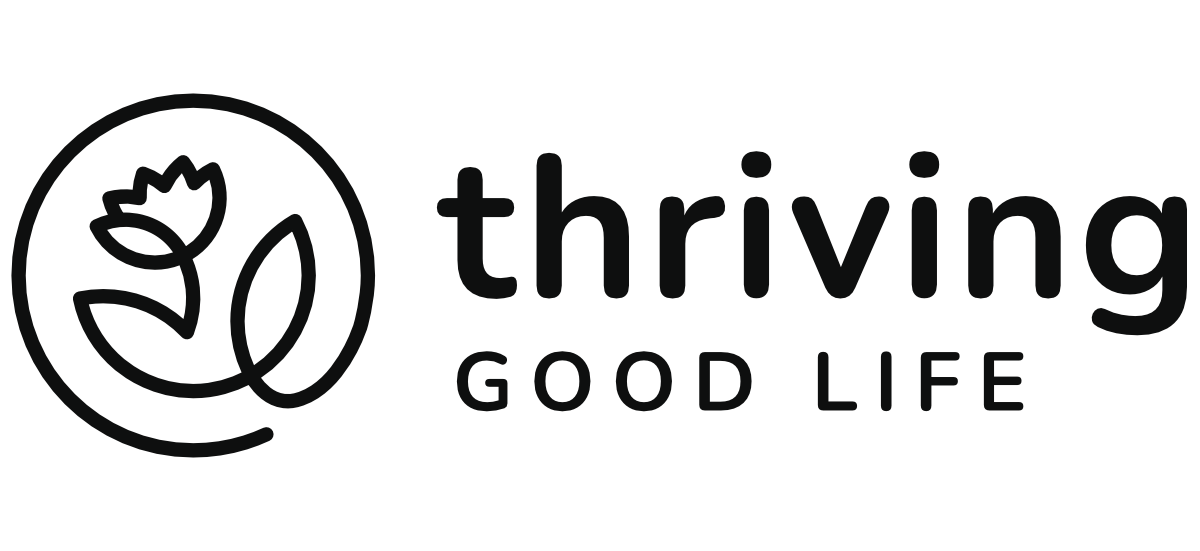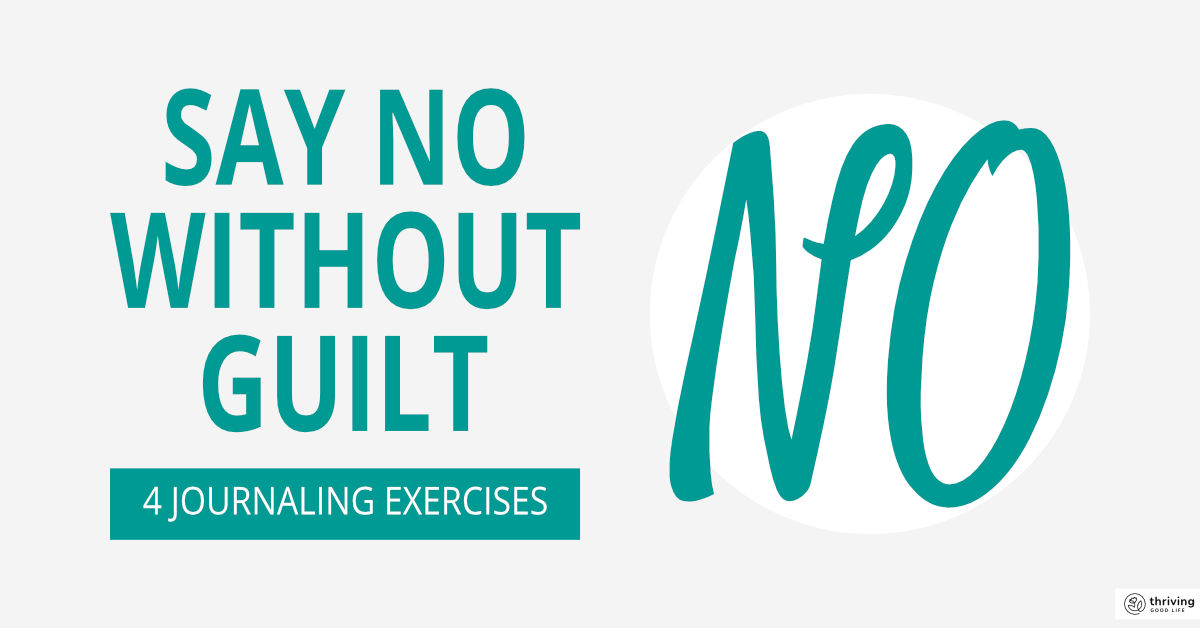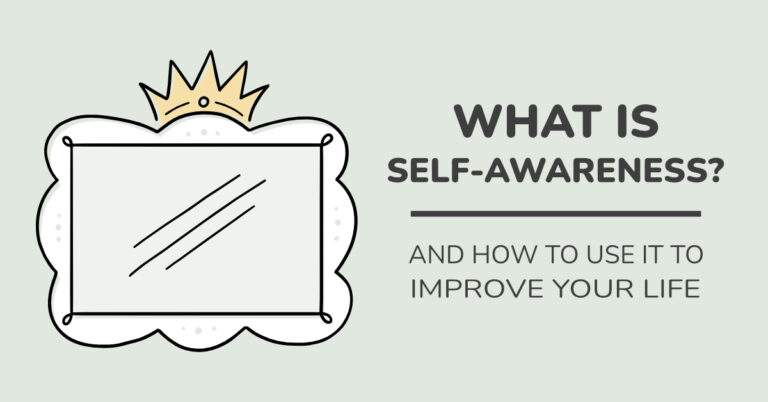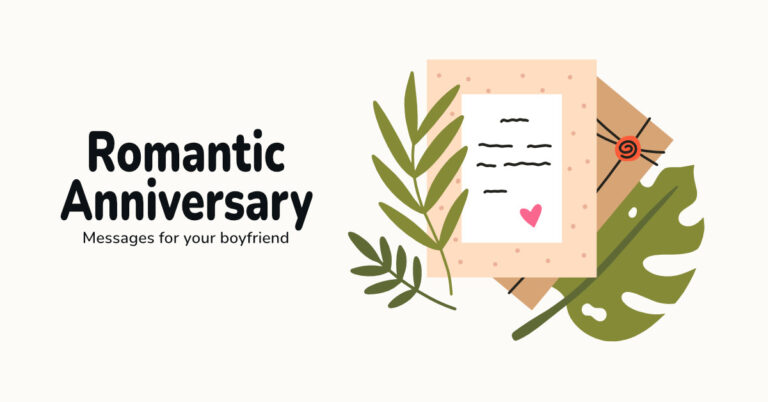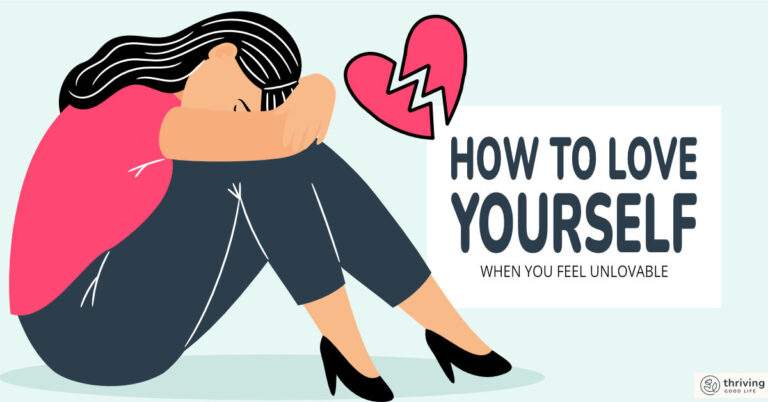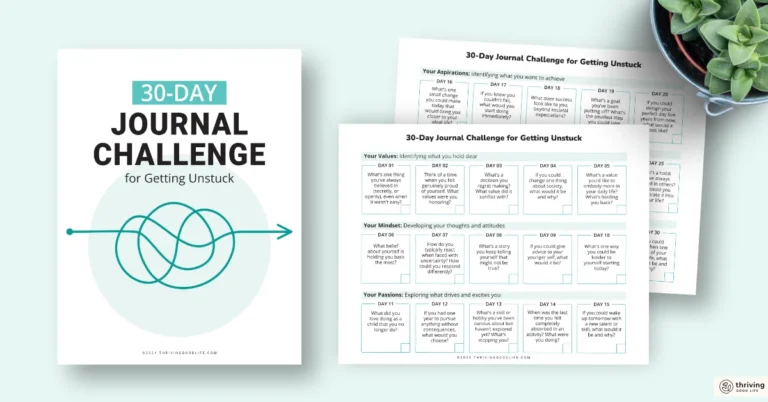🙏🏾 Learn how to confidently say no with the help of a simple notebook and a pen.
If you could just figure out how to say no, without feeling guilty, life would be so much easier. Wouldn’t it?
No more worrying about taking on too much, or pleasing others at the expense of your happiness.
You’d be free to focus on what matters to you. And you’d have more time and energy for the people and activities that bring you joy.
But if you’ve spent a lifetime saying ‘yes’ when inside you want to scream ‘no’, how do you break this cycle? How do you free yourself from the burden of overcommitment and people-pleasing?
The answer might be simpler than you think: journaling.
In this article, we’re going to explore four journaling exercises that can help you kick guilt to the curb, stand up for yourself, and start saying no with confidence.
💡 Related: Ultimate Beginners Guide to Starting a Journaling Practice
‘No’ Isn’t a Dirty Word
I’m not a people pleaser.
I have no problem saying no to things I don’t want to do.
In fact, I thrive on it.
Now, before you write me off as a selfish jerk, hear me out.
I know so many women who grapple with the challenge of releasing those two little letters: N.O.
And you know what? It makes me feel a certain way.
Because our ability to say ‘no’ is one of the most powerful tools we have at our disposal. It gives us the strength to set and maintain boundaries that prioritise our happiness and sanity.
A good friend of mine struggles to say no.
There have been times when she’s flat-out ghosted me.
She figures, if she ignores my invitations, it would spare her from having to ‘let me down’. But I’d rather hear the word ‘no’ than hear crickets.
I’m not mad at her, though. We’ve known each other since primary (elementary) school and she has a good heart. A little too good.
So the other day we were having a candid conversation about why she agrees to things she doesn’t want to do. Everything in her response was screaming guilt, motherly duty, family responsibility.
I looked her dead in the eyes and said:
“You know, when you say ‘no’ what you’re really doing is protecting your time, energy, and peace. Never, ever feel bad or guilty about that”.
There was a long pause.
Followed by: “I’d never thought of it like that before”.
If there’s one thing you take away from this article, let it be this:
‘No’ isn’t a dirty word.
How you manage your time and energy is central to your well-being. When you need to protect those assets, it’s not selfish or rude to politely decline an offer or request (emphasis on politely).
Okay, let’s move on to the journaling exercises for saying no without guilt.
1) Understand Why it’s Hard to Say No
Socialisation has certainly done a number on us.
The longing to fit in and be embraced by society and our peers runs deep, making it quite the feat to paddle against the prevailing tide.
We carry this fear of disappointing others, burdened by a sense of unspoken obligation, and the heavy weight of guilt when we find the courage to utter that simple two-letter word: ‘no’.
Understanding how this socialisation has shaped our behaviour and thought patterns is the initial stride towards reclaiming control.
This brings us to our first exercise – which is all about gaining self-awareness and insight into your own struggles when it comes to saying ‘no’.
Journaling Exercise: Understanding the Root
Start by writing a journal entry on the underlying reasons and emotions behind your difficulty in saying ‘no’. Let your thoughts flow onto the page. Be real with yourself and dive into any fears, worries, beliefs, and past experiences that contribute to this challenge.
Think back to those moments when saying ‘no’ felt like a gigantic mountain to climb and explore how you felt deep down.
Ask yourself a few thought-provoking questions:
- What makes it so hard for me to say ‘no’?
- What role does my upbringing or culture play in my struggle with saying ‘no’?
- What emotions do I experience when I consider saying ‘no’?
- How do past experiences influence my ability to say ‘no’?
- What situations make it particularly challenging for me to say ‘no’?
2) Identify Core Values & Priorities
Your core values are everything.
When you know your values, it becomes easier to establish boundaries and say no to people or things that don’t align with what truly matters to you.
This clarity allows you to prioritise your time and energy on the things that bring you joy, satisfaction, and a sense of purpose.
For example, if one of your core values is family, you might choose to decline a work assignment that requires excessive travel, so you can spend more time with your loved ones.
Or, if you value personal growth, you might decide to say no to social events that don’t contribute to your growth or well-being, and instead use that time for self-improvement activities like reading, attending workshops, or learning new skills.
Journaling Exercise: Core Values
Brainstorm a list of values and principles that are important to you.
Narrow down this list until you find your top five core values. Then for each one, write about why they’re important to you.
I created a core values PDF with more guidance on this.
The free version is designed to give you a taste of the process and help you get started on uncovering your values. You can access that here:
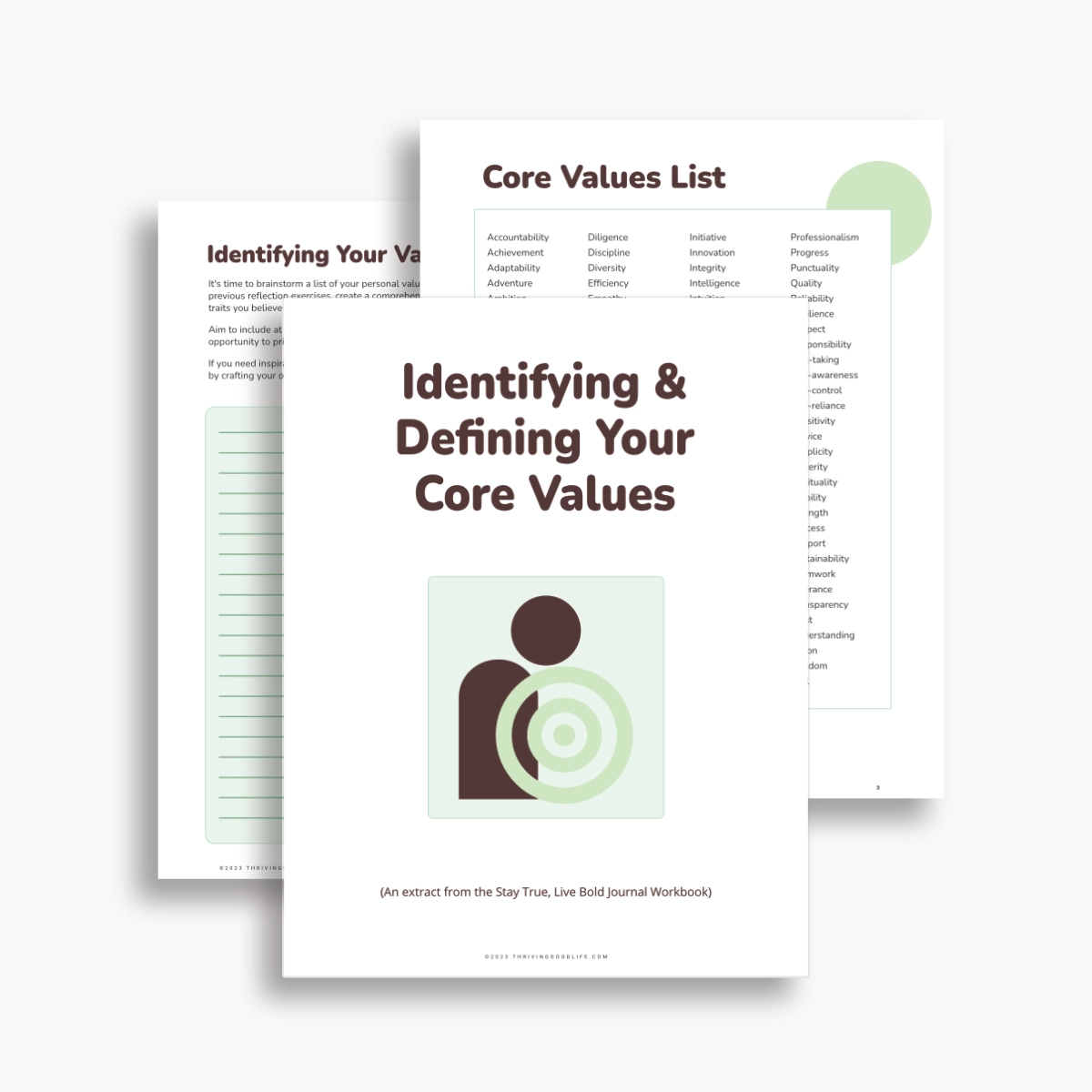
Feel like you’re living someone else’s life?
Get this free core values printable PDF. Pus access to my journal library, worksheets, updates and special offers.
By signing up you agree to our T&Cs and Privacy Policy.
If you want to dive deeper into exploring your values there’s a paid version with more in-depth exercises, prompts, and an action plan to help you integrate your values into your life. You can access that here:
Stay True, Live Bold: Core Values Printable Workbook
3) Dismantle Limiting Beliefs
There will always be invisible walls in our minds.
These stop us from doing things we want to do or being the person we want to be. If left unchallenged, these walls will forever block our ability to move forward.
If you were raised in a culture where you were expected to be obedient, it’s likely that you’ve internalised the idea that saying no is somehow disrespectful or wrong.
This limiting belief can make it difficult for you to set boundaries and prioritise your own needs over those of others.
Trust me, I grew up in a strict Nigerian, religious household.
To say ‘no’ to an elder was essentially choosing death. I had to do a lot of reprogramming to shift my mindset.
If you want to create a healthier relationship with those two little letters, you’re going to need to start dismantling some limiting beliefs.
Journaling Exercise: Reframing ‘No’
Write down all the limiting beliefs you have around the word ‘no’. Focus not only on how you feel about the word but also on how you feel others will view you.
Some examples could be:
- Saying ‘no’ makes me selfish or uncaring.
- If I say ‘no’, people will be disappointed in me or stop liking me.
- I need to always be helpful and accommodating to be a good person.
- Saying ‘no’ means I’m not a team player or supportive friend/family member.
- I will miss out on opportunities if I say ‘no’ to things.
- People will think I’m lazy or uncommitted if I turn down requests.
- I don’t have the right to say ‘no’ when someone needs my help.
- If I say ‘no’, I might damage my relationships or reputation.
- I should be able to handle everything that comes my way without saying ‘no’.
- Saying ‘no’ is a sign of weakness or lack of resilience.
Write your beliefs in your own words.
Once you’ve identified your limiting beliefs, take some time to reflect on them.
For each belief, ask yourself: “Is this belief true, and what evidence do I have to support this?” This helps you examine the validity of your beliefs and opens the door to alternative viewpoints.
Next, take your limiting beliefs and reframe them with empowering thoughts.
For example, if your belief is: “Saying ‘no’ makes me selfish or uncaring”.
Reframe it as: “Setting boundaries and saying no is an act of self-care and self-respect”.
Write down these empowering thoughts and remind yourself of them whenever you face situations where saying no feels challenging.
4) Practice Saying No on Paper
When you release that sweet word from your lips, you want it to land well.
Just like Goldilocks finding the perfect bed -not too hard, not too soft, but just right – your ‘no’ needs to strike the right balance.
By executing a clear and confident ‘no’, you’re demonstrating that you know your limits. You’re respecting your needs, boundaries, and priorities.
And those who genuinely care about you will understand and honor your decision.
As for those who take offense, continue to push you into saying yes, and grumble as if they’ve just lost a lung, well, they’re not your people.
They’re emotional blackmailers1.
The key is to find that sweet spot where you’re firm yet friendly. Your journal is the best place to practice saying ‘no’ and perfecting your delivery.
Journaling Exercise: Ways to Say No
Take a moment to think about various situations where you struggle to say ‘no’, or would like to improve your ability to decline.
Create a list of different ways, phrases, and terms you can use to say ‘no’ assertively and respectfully. Aim for a variety of approaches to suit different contexts and relationships.
Here are some examples:
Workplace: When coworkers or bosses ask you to do extra tasks that aren’t really your job, how can you say ‘no’ without jeopardising your professional relationships?
Family: When family members ask you for favours or help that you can’t give, how can you still show them love and support while saying ‘no’?
Romantic relationships: If your partner asks you to do something you don’t want to or that goes against your values, how can you maintain your boundaries while keeping the love alive?
Friendships: When friends invite you to events or activities that you’re not into or don’t have time for, how can you say ‘no’ without damaging the friendship?
Casual acquaintances: When people you don’t know well or strangers ask for your time or help, how can you say ‘no’ kindly without seeming rude?
Think of this exercise like you’re creating scripts for how to articulate your ‘no’s for future circumstances. Having this as a guide will help you structure your words in real-life scenarios.
Journaling is your friend. Give these exercises a go, and boost your confidence by training yourself to say ‘no’ in a friendly and respectful manner.
— Did You Find This Article Helpful? Pin it for Later —
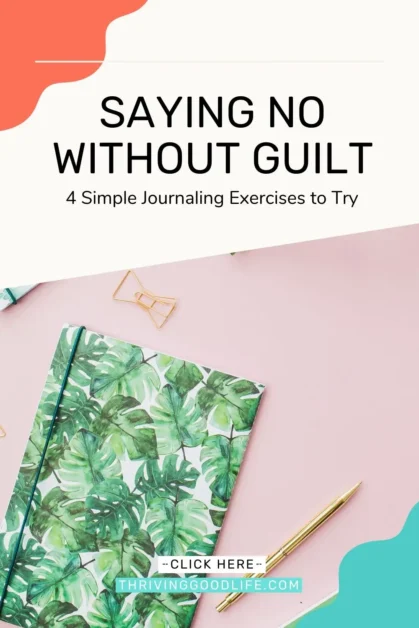
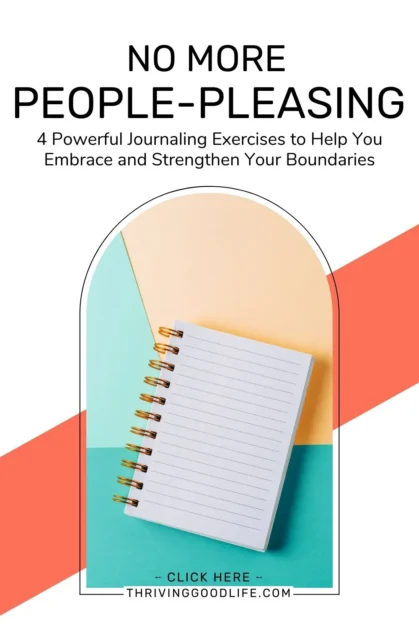
Footnote
- Emotional Blackmail: When the People in Your Life Use Fear, Obligation, and Guilt to Manipulate, is a great book. It delves into the psychology of these energy-draining bandits and gives you tools to protect yourself from their bullying antics.
